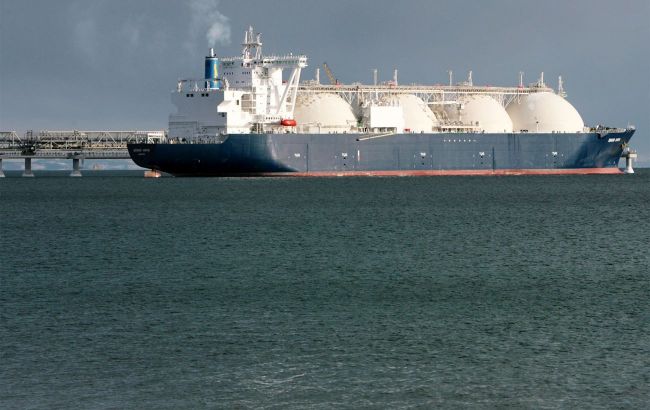EU states to discuss restrictions on gas trade with Russia as part of new sanctions
 EU states will discuss restrictions on gas trade with Russia (GettyImages)
EU states will discuss restrictions on gas trade with Russia (GettyImages)
Representatives of 27 EU member states will convene on Wednesday to discuss a proposal for a new package of sanctions against Russia. The focal point will be on curtailing Moscow's revenues from the supply of liquefied natural gas (LNG), according to Politico.
The European Commission wants EU countries to cease re-exporting Russian LNG.
It is stated that if EU member states agree to the commission's proposal, it will mark the first time Brussels has taken a stand against Russia's powerful gas sector in response to its full-scale invasion of Ukraine.
Details of potential changes in re-exportation
Although the EU has banned the import of Russian coal and seaborne crude oil, the commission does not propose a direct ban on the import of Russian LNG, which EU members still purchase in large quantities.
Instead, the commission plans to take measures against the so-called transshipment of LNG through EU ports.
This could significantly impact the Russian liquefied natural gas plant in Yamal, which relies on ice-breaking tankers for fuel extraction. Russian LNG is then unloaded at EU ports from where it is further shipped to other countries worldwide.
Additionally, the new sanctions will prohibit EU firms from investing in future LNG projects in Russia, limiting the sector's ability to expand and thereby restricting Russia's revenues.
Import of Russian gas to Europe
European Commissioner for Energy Kadri Simson recently announced that the European Union could impose sanctions on Russian liquefied natural gas. Restrictions on the import of natural gas from Russia are not currently planned.
Last year, the share of Russian gas in the EU was 15%, while in 2021 this figure was about 45%. Thus, gas imports from Russia to the EU decreased by 71% from 2021.
Meanwhile, the contract for the transit of gas from Russia through Ukraine, signed by NJSC Naftogaz of Ukraine and Gazprom at the end of 2019, expires on December 31 of this year.
The term of its validity theoretically may be extended. However, Ukraine has already categorically stated the impossibility of such an option.
For more details on transit, see the RBC-Ukraine coverage.

